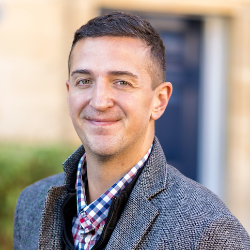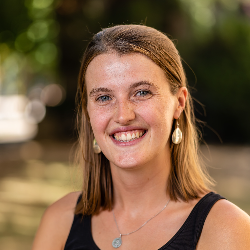Stefan Debruyne, Director of External Affairs, SQM International
Andrew Miller, COO, Benchmark Mineral Intelligence
Beatrice Browning, Senior Recycling Analyst, Benchmark Mineral Intelligence
Sarah Colbourn, Acting Head of Sustainability, Benchmark Mineral Intelligence
INSTRUCTOR BIOGRAPHIES:
 Stefan Debruyne, Director of External Affairs, SQM International
Stefan Debruyne, Director of External Affairs, SQM International
Stefan Debruyne joined SQM in 2005 as Asia-Pacific Sales Director, Lithium and Iodine, where he witnessed firsthand the lithium-ion battery production boom in Asia and the emerging electrification of transportation in China. In his present role as Business Development Director, he is focusing on the engagement with the automotive battery value chain and its stakeholders. Prior to joining SQM in 2005, he held a variety of international commercial roles at different listed companies. He has earned a Business Engineering degree from University of Leuven and an executive MBA from Vlerick Business School. He currently works for SQM as Director of Business Development.
 Andrew Miller, COO, Benchmark Mineral Intelligence
Andrew Miller, COO, Benchmark Mineral Intelligence
Andrew Miller holds the position of Chief Operating Officer (COO) at Benchmark Mineral Intelligence Ltd (Benchmark), a London-based market intelligence, consultancy and price reporting agency specializing in energy transition supply chains. Andrew oversees Benchmark's supply chain research and analysis, which stretches from long-term forecasting of supply, demand, costs, and pricing, through to sustainability assessments and bespoke advisory projects for a cross section of industry and regulatory stakeholders. At Benchmark, Andrew regularly presents to leading market participants, government bodies and industry forums, while also travelling to active mines, processing plants and manufacturing hubs across the world. He leads a global team of analysts and consultants and has advised some of the world’s leading institutional investors, auto OEMs, battery producers and mining companies. Prior to Benchmark, Andrew held a number of analyst positions across commodity research and finance, after graduating with a first-class honours degree in Economics from the University of East Anglia, UK.
 Beatrice Browning, Senior Recycling Analyst, Benchmark Mineral Intelligence
Beatrice Browning, Senior Recycling Analyst, Benchmark Mineral Intelligence
Beatrice Browning is the senior recycling analyst in the forecasting team at Benchmark Mineral Intelligence. She has been working towards a PhD in lithium-ion battery recycling since 2019, which has given her an in-depth technical understanding of lithium-ion battery recycling techniques—something that has been highly useful for her role as a recycling analyst at Benchmark. Beatrice has been working on the recycling forecast since March 2021, tracking regional advancements in battery recycling infrastructure, technologies, and policy frameworks to build up a global understanding of the lithium-ion battery recycling market.
 Sarah Colbourn, Acting Head of Sustainability, Benchmark Mineral Intelligence
Sarah Colbourn, Acting Head of Sustainability, Benchmark Mineral Intelligence
Sarah Colbourn, Acting Head of Sustainability at Benchmark Mineral Intelligence, leads analysis covering research on energy transition supply chains, exploring the sustainability of raw material extraction and refining, assessing ESG risks and opportunities. Beyond this focus, Sarah has experience of leading Benchmark's coverage of the battery recycling market, having been responsible for Benchmark's long-term outlook of the market prior.